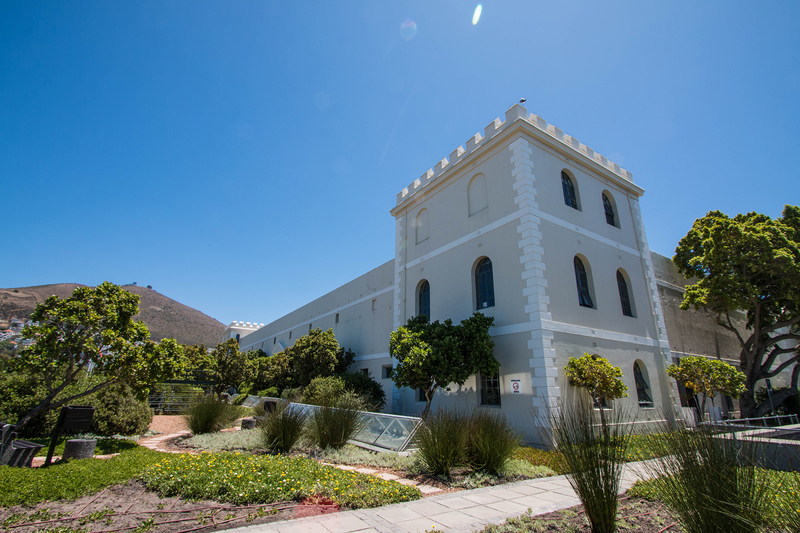RESEARCH
Driving research and teaching at the UCT GSB and beyond
Global Excellence
The UCT GSB has 32 core faculty members. Many are internationally acclaimed as researchers and teachers or are closely involved in national and regional issues whilst playing leading roles in policy formulation and implementation. All are dedicated and gifted individuals who contribute directly to the UCT GSB's reputation for excellence. The faculty is supplemented by more than 70 visiting academics and executives from all over the world. Their presence adds to the wealth of expertise and depth of knowledge that is available to students.
RESEARCH THEMES
Engaged inquiry in a complex world; UCT GSB research focuses on three thematic clusters
This research node capitalises upon the UCT GSB's location and expertise within the emerging market of South Africa. Emerging markets have several characteristics in common, including high levels of uncertainty, complexity and inequality associated with middle-income traps and political and economic liberalisation. This has major consequences for the business and economic environment. Companies are challenged to change standard practices and protocol in recognition of fluid 'rules of the game' and higher country risk profiles. In this research node we seek to comprehensively unpack the political, institutional, economic, financial and social forces at work in these emerging economies with a view to better inform organisations and investors as to how to adapt their strategies and portfolios to take advantage of the opportunities presented. This includes work on the impact of institutions on economic development in emerging markets; companies' strategic responses to institutional voids; democratisation, local governance and service delivery; and emerging financial markets, implications for corporate finance, and new developments in sustainable and responsible investment.
In this research node we are concerned with the nature of intentional, collaborative work that creatively transforms social-ecological systems across multiple scales. We focus on the development of products, processes, initiatives, or organisations that:
- create social value through both means and ends; and
- reconfigure institutionalised rules, values, beliefs, or relational patterns.
We see emerging economies as especially fertile places to explore these themes. Because of their complexity, uncertainty, and inequality, emerging economies are often at the forefront of incubating practices that challenge current social paradigms. We are particularly interested in the organisational and network dynamics of social innovation and in the role that inter-organisational, cross-sector, and cross-scale relationships may play in developing and embedding solutions to wicked problems. UCT GSB researchers currently explore these questions via a variety of topics and contexts, including health care, education, food security, climate change, impact investing, the sociology of finance, social entrepreneurship, supply chain innovation, and inclusive innovation.
Much of the research in this area is supported by the Bertha Centre for Social Innovation and Entrepreneurship.
There is growing concern about unethical behaviour among managers. An array of scandals is eroding public confidence in corporations as agents of development and positive social change. Such scandals exacerbate worries about companies acting as vehicles for self-enrichment at the expense of society and the environment. Yet despite a plethora of analyses, debates and laws, it seems that nothing much has changed. Why is change so difficult and what is our role in such change? What are the assumptions supporting our current business management model, and what are their implications? What if a broader array of values included as motives for managers, and what if we take seriously the complex interactions between values, actions, and outcomes? These are among the key questions addressed in various ways in this UCT GSB research cluster.
Research on this theme is supported in particular by the Allan Gray Chair in Values-Based Leadership.

RESEARCH ETHICS
Ensuring ethical standards and procedures to protect the dignity, rights and welfare of research participants
If any research involves human subjects as interviewees, survey respondents, or in any other way, then the research will need to be approved by the UCT’s Ethics in Research Committee (EiRC) to ensure that the appropriate ethical standards are being upheld.
The objective is not to delay or prevent research but rather to facilitate high quality research, to ensure adequate protection of participants and researchers, as well as the institution. Engaging with this review process is part of the enterprise to make us better researchers and to facilitate and sustain excellence in research endeavours. Researchers are encouraged to consult with a member of the EiRC before submitting a proposal, especially when in doubt about particular aspects of that proposal. The application process seeks to prompt researchers to consider all the necessary aspects for ethical research when drawing up a research proposal.
RESEARCH PUBLICATIONS
Explore UCT GSB faculty research outputs

RESEARCH PUBLICATIONS
Explore UCT GSB faculty research outputs

CASE WRITING CENTRE
Excellent teaching cases that reflect the African and the emerging market context
MEET THE RESEARCH DIRECTOR
SEAN GOSSEL
Associate Professor, Research Director, Assistant Deputy Director
Associate Professor Sean Gossel’s expertise at the GSB lies in the areas of financial economics and financial globalization. Thus, he lectures Public Sector Finance, on the MCom (Development Finance) program and the Emerging Markets Economic Development elective on the MBA program. Sean’s lectures seek to position finance and macroeconomics in a historical, emerging market, and financial globalization context. This focus carries over into his research and supervision.

OPPORTUNITIES FOR INVOLVEMENT
There are a variety of opportunities for organisations to become involved in UCT GSB research and student exercises. UCT GSB researchers, including Faculty, PhD students and MBA students, are often looking for exciting case studies or organisational phenomena to investigate. In addition, MBA students engage in hands-on projects focused on strategy and innovation in businesses, government agencies or civil society organisations. If you are interested in such opportunities and would like your organisation to be considered, please contact us.
